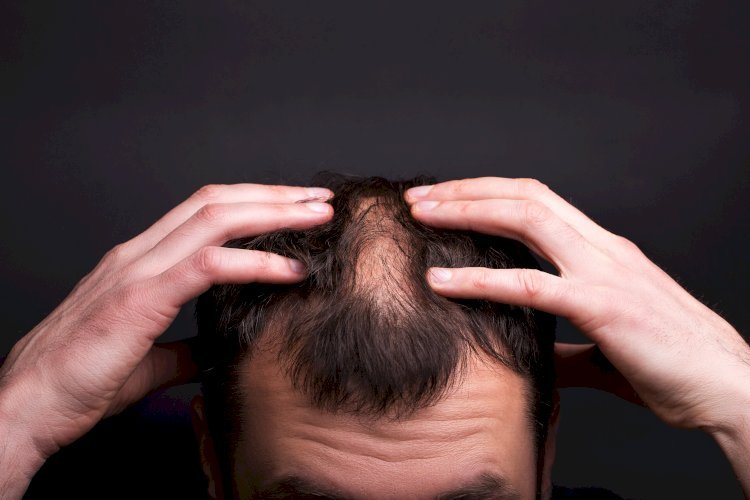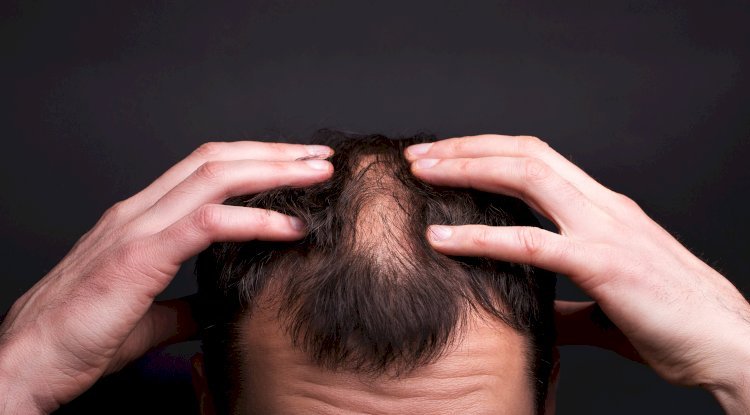Can hair loss be stopped?


Hair loss is a concern for many people, affecting both men and women across the globe. It can be distressing to notice thinning hair or bald spots, leading to decreased confidence and self-esteem. Understanding the causes and potential treatments for hair loss is the first step toward addressing the issue. But can hair loss really be stopped, or is it an inevitable part of aging? Fortunately, advances in medical science have opened the door to several hair loss treatments that can effectively slow or even reverse the condition in many cases.
Understanding the Causes of Hair Loss
Before diving into treatments, it's essential to understand why hair loss happens in the first place. Various factors contribute to hair loss, including genetics, hormonal changes, nutritional deficiencies, stress, and certain medical conditions. The most common type of hair loss is androgenetic alopecia, or pattern baldness, which is inherited and affects both men and women.
Other causes include:
- Hormonal Imbalances: Conditions like pregnancy, menopause, and thyroid disorders can lead to temporary hair loss.
- Stress and Trauma: High levels of stress, emotional trauma, or surgery can trigger telogen effluvium, where more hairs than usual enter the resting phase, causing noticeable thinning.
- Medical Conditions: Diseases like alopecia areata, scalp infections, and autoimmune disorders can also lead to hair loss.
- Medications and Treatments: Drugs used to treat cancer, high blood pressure, arthritis, depression, and heart problems can have hair loss as a side effect.
Once the cause is identified, it becomes easier to determine if hair loss can be stopped or at least managed.
Can Hair Loss Be Stopped?
The ability to stop hair loss depends on its cause. While some types of hair loss are reversible, others may not be entirely curable but can be slowed down. Here are some of the most effective strategies to combat hair loss:
-
Medication: For those with pattern baldness, medications like minoxidil (Rogaine) and finasteride (Propecia) are commonly prescribed. Minoxidil is an over-the-counter topical solution that stimulates hair growth, while finasteride is a prescription pill that reduces hair loss by blocking DHT, a hormone linked to hair thinning.
-
Diet and Nutrition: Poor nutrition can lead to hair loss, and addressing deficiencies in essential vitamins and minerals like iron, zinc, biotin, and vitamin D can promote healthier hair growth. Adopting a balanced diet rich in these nutrients may prevent further hair thinning.
-
Stress Management: Since stress is a known contributor to hair loss, managing stress through practices like yoga, meditation, or regular exercise can help improve overall well-being and potentially reduce hair shedding.
-
Hormonal Therapy: For women, hormone replacement therapy (HRT) may be recommended to manage hair loss due to menopause or other hormonal imbalances.
-
Hair Loss Treatments: If you're looking for effective solutions, consider professional hair loss treatment in Islamabad. Clinics offer cutting-edge treatments such as Platelet-Rich Plasma (PRP) therapy, low-level laser therapy, and mesotherapy, which have been shown to slow down hair thinning and promote hair regrowth.
-
Lifestyle Changes: Quitting smoking, reducing alcohol intake, and ensuring adequate sleep are essential lifestyle changes that can contribute to healthier hair.
Surgical Interventions for Hair Loss
In cases where hair loss is advanced, medical treatments may not be enough to regrow hair. However, surgical options like hair transplants can offer a more permanent solution. During a hair transplant procedure, healthy hair follicles are taken from one part of the scalp (usually the back) and transplanted to areas experiencing thinning or baldness.
Hair transplant techniques have evolved significantly over the years, resulting in more natural-looking results. Two common types of transplants are Follicular Unit Transplantation (FUT) and Follicular Unit Extraction (FUE). Both procedures are performed under local anesthesia and involve little downtime.
Prevention is Key
Even if hair loss cannot be entirely stopped, early intervention can significantly slow its progress. Regular check-ups with a dermatologist or trichologist can help identify hair thinning early and prevent further loss. Maintaining a healthy scalp by using gentle hair care products, avoiding excessive heat styling, and limiting the use of harsh chemicals can also go a long way in preserving hair health.
Are Hair Loss Treatments Effective?
The effectiveness of hair loss treatments depends on several factors, including the cause of hair loss, how early treatment begins, and the type of therapy used. While medications and non-surgical treatments can yield good results for some individuals, others may require more intensive intervention like hair transplant surgery.
It's crucial to consult a specialist who can evaluate your unique situation and recommend a treatment plan tailored to your needs. Additionally, being patient is important, as many hair loss treatments require several months to show visible results.
Conclusion
While hair loss can be distressing, the good news is that it is not always a permanent condition. Depending on the underlying cause, it may be possible to slow or even reverse hair loss with proper treatment. Advances in medical science, including medications, non-surgical therapies, and surgical interventions, provide multiple options for those looking to maintain or restore their hair. Consulting with a specialist for an individualized treatment plan can significantly improve the outcome.
If you are considering hair loss treatment, the Royal Cosmetic Surgery clinic offers a variety of advanced therapies that are tailored to meet individual needs.
What's Your Reaction?














